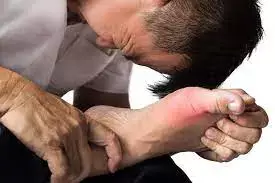- Home
- Medical news & Guidelines
- Anesthesiology
- Cardiology and CTVS
- Critical Care
- Dentistry
- Dermatology
- Diabetes and Endocrinology
- ENT
- Gastroenterology
- Medicine
- Nephrology
- Neurology
- Obstretics-Gynaecology
- Oncology
- Ophthalmology
- Orthopaedics
- Pediatrics-Neonatology
- Psychiatry
- Pulmonology
- Radiology
- Surgery
- Urology
- Laboratory Medicine
- Diet
- Nursing
- Paramedical
- Physiotherapy
- Health news
- Fact Check
- Bone Health Fact Check
- Brain Health Fact Check
- Cancer Related Fact Check
- Child Care Fact Check
- Dental and oral health fact check
- Diabetes and metabolic health fact check
- Diet and Nutrition Fact Check
- Eye and ENT Care Fact Check
- Fitness fact check
- Gut health fact check
- Heart health fact check
- Kidney health fact check
- Medical education fact check
- Men's health fact check
- Respiratory fact check
- Skin and hair care fact check
- Vaccine and Immunization fact check
- Women's health fact check
- AYUSH
- State News
- Andaman and Nicobar Islands
- Andhra Pradesh
- Arunachal Pradesh
- Assam
- Bihar
- Chandigarh
- Chattisgarh
- Dadra and Nagar Haveli
- Daman and Diu
- Delhi
- Goa
- Gujarat
- Haryana
- Himachal Pradesh
- Jammu & Kashmir
- Jharkhand
- Karnataka
- Kerala
- Ladakh
- Lakshadweep
- Madhya Pradesh
- Maharashtra
- Manipur
- Meghalaya
- Mizoram
- Nagaland
- Odisha
- Puducherry
- Punjab
- Rajasthan
- Sikkim
- Tamil Nadu
- Telangana
- Tripura
- Uttar Pradesh
- Uttrakhand
- West Bengal
- Medical Education
- Industry
Depression may increase risk of gout: study

Depression may increase the risk of gout suggests a new study published in the International Journal of Rheumatic Diseases.
The co-disease of depression and gout is becoming more common in the modern era. However, the relationship between the severity of depressive symptoms and gout prevalence and treatment rate was still unclear. This study aimed to determine the relationship between the prevalence, treatment rate of gout, and the severity of depression in the United States. The cross-sectional analysis of the 2007-2018 National Health and Nutrition Examination Survey (NHANES) for participants with depression was performed. According to their Patient Health Questionnaire-9 (PHQ-9) scores, participants were categorized as none, mild, moderate, moderately severe, and severe. To learn the correlation between the severity of depressive symptoms and the prevalence and treatment rate of gout using multivariate logistic regression to control for confounder interference.
Results: A total of 25 022 patients were included in this study. As the severity of the depressive symptoms worsened (Mild, Moderate and Moderately severe), the risk of gout increased in non-adjusted model and model 1,2,3 (p-value for trend =.01 in non-adjusted model, <.0001 in model 1, <.01 in models 2 and 3; prevalence group in Model 1, aOR1.71, 95% CI (1.40, 2.08) in the mild group, aOR1.68, 95% CI (1.19, 2.39) in the moderate group, aOR1.31,95% CI (0.82, 2.11) in the moderately severe group, aOR1.21, 95% CI (0.62, 2.38) in the severe group). However, the lower gout prevalence trend has no statistical significance after adjusting all factors in Model 4(p-value for trend =.98). Compared with patients without depression, only a few patients received treatment, especially patients with severe depression (none, 80.1%; severe, 0.2%). The more severe the depression, the lower the treatment rate. Compared with patients without depression, the patients with depression had a higher risk of gout. With the aggravation of depression, the prevalence of gout and the rate of treatment both decreased. Patients with gout and depression need to receive multidisciplinary care after diagnosis. However, currently, treatment cannot meet the needs of the current patients.
Reference:
Lu S, Qian T, Cao F, Kang T, Liu X, Wang C, Xia Y, Hou X. Prevalence and treatment rate of gout by depressive symptom severity: A cross-sectional analysis of NHANES 2007-2018. Int J Rheum Dis. 2024 Jan;27(1):e14959. doi: 10.1111/1756-185X.14959. Epub 2023 Nov 20. PMID: 37984452.
Dr. Shravani Dali has completed her BDS from Pravara institute of medical sciences, loni. Following which she extensively worked in the healthcare sector for 2+ years. She has been actively involved in writing blogs in field of health and wellness. Currently she is pursuing her Masters of public health-health administration from Tata institute of social sciences. She can be contacted at editorial@medicaldialogues.in.
Dr Kamal Kant Kohli-MBBS, DTCD- a chest specialist with more than 30 years of practice and a flair for writing clinical articles, Dr Kamal Kant Kohli joined Medical Dialogues as a Chief Editor of Medical News. Besides writing articles, as an editor, he proofreads and verifies all the medical content published on Medical Dialogues including those coming from journals, studies,medical conferences,guidelines etc. Email: drkohli@medicaldialogues.in. Contact no. 011-43720751


